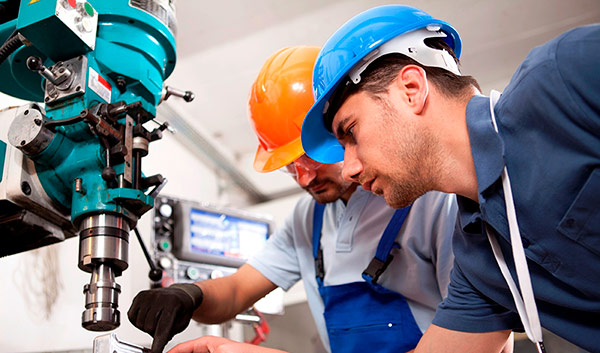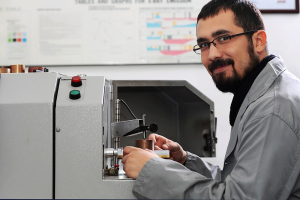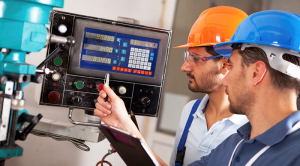22 September 2014
Extension Dean on advanced manufacturing sector: Increased demand for trained, educated workforce

Photos courtesy of San Diego Workforce Partnership
With the manufacturing industry in the U.S. undergoing dramatic changes that demand more advanced, diverse and technological skills, what does the future hold for San Diego’s largest manufacturing sectors?
What training gaps must employers and educators at all levels immediately address to assure that the workforce has the requisite skills and knowledge to succeed?
Those pressing issues form the backdrop for the “San Diego Workforce Conference: Future Employment in Our Priority Sectors” — an all-day seminar co-presented by the San Diego Workforce Partnership and the San Diego and Imperial Counties Community Colleges Association (SDICCCA).

UC San Diego Extension dean Mary Walshok will be among a series of presenters at the event, addressing the changing educational curriculum and training courses that will be required to enter the increasingly complex Advanced Manufacturing sector.
Free and open to the public, the event will be held Thursday, Oct. 2, at the Hall of Champions in Balboa Park (2131 Pan American Plaza, San Diego, CA 92101).
The conference will present a program of experts on San Diego’s leading major industries, including:
-
Life Sciences
-
Health Care
-
Clean Energy
-
Information & Communications Technologies
-
Advanced Manufacturing
Walshok’s report will be based on research compiled by UC San Diego Extension’s Center for Research on the Regional Economy, directed by Josh D. Shapiro.
Among the report’s major findings:
-
Advanced Manufacturing is a major sector in San Diego region that is expected to grow by about 10,000 jobs over the next four years, reaching 180,700 by 2018. By 2020, the figure is expected to reach 193,000.
-
Employers reported “some” or “significant difficulty” finding qualified workers for many occupations
-
The cost of complexity of training requirements in the Advanced Manufacturing sector makes it difficult for educators to design a targeted curriculum
Advanced Manufacturing covers a wide breadth of industries, with no one industry dominating this sector. Reflecting San Diego’s growing diverse economy, the top three leading industries are:
-
Electronic, electronic equipment and components: 13%
-
Aircraft/aerospace: 11%
-
Fabricated metals products: 10%
 Similar to most of San Diego’s other leading innovation sectors, Advanced Manufacturing is comprised of primarily small companies with 96 percent having fewer than 100 employees.
Similar to most of San Diego’s other leading innovation sectors, Advanced Manufacturing is comprised of primarily small companies with 96 percent having fewer than 100 employees.
That means the strength of this sector comes from aggregated jobs, Gross Domestic Product (GRP) contribution, and innovation in thousands of small businesses.
As for education and training requirements, most Advanced Manufacturing jobs require at least a high school education. Moving up requires on-the-job experience or more academic credentials from two-year or four-year colleges.
Also, many occupations require a specific set of skills for their workers, which can sometimes be acquired with a job-specific credential. Certain educational credentials may be applied to multiple occupations.
“As part of our research, we learned that, until very recently, there were no industrial engineering programs — none — being taught at San Diego’s colleges or universities,” Walshok said. “Yet our research clearly indicates that the demand for educated workers in Advanced Manufacturing must come from an expanded role in community college and adult continuing education programs.”
An author, educator, and researcher, Walshok is a national and international expert on the role of continuing education and research institutions in aligning workforce development with the growth of regional economies.
Cindy Marten, superintendent of the San Diego Unified School District, will give the event’s keynote speech.